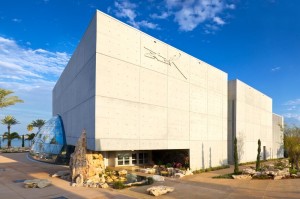From Rick Clugston:
Rio+20 and the Earth Charter
Rio+20 offers unique opportunities to realize a primary purpose for which the Earth Charter was created: to inspire and guide governments and civil society in embracing a new development paradigm- creating the global economic and governance structures necessary to realize a just, sustainable and peaceful future.
During the past five Rio+20 negotiating sessions at the UN in New York, ECI has been:
1. lobbying the UN member state negotiators to include a strong ethical framework, such as the Earth Charter, in the outcomes of Rio+20, and to strengthen their nations’ commitments to education for sustainable development oriented to such strong sustainability.
2. contributing to building the civil will- the civil society movement-that practices sustainable ways of living and effectively demands the political will to create the future we want.
The following is a description of these opportunities:
The negotiations on the Zero Draft of the outcome document:
Some 650 governments and NGO’s, including Earth Charter International, sent recommendations for the outcomes of Rio+20. These recommendations were put into a Compilation Document which was some 2500 pages long. (31 submissions to the Compilation Document included the Earth Charter in their recommendations, including four UN Member States- Armenia, Bolivia, Mexico and the Russian Federation.)
The UN DESA staff analyzed these inputs and released a 19 page first (Zero) draft of this outcome document on January 10th.
The delegations from the UN Member States met in New York from 25-27 of January to develop a strategy for revising this Zero Draft, then met again the last two weeks in March to make revisions.
The Earth Charter was referenced in the expanded Zero draft, and as were many references to the need for ethics and “strong” sustainability (e.g., by Russia, Jordan, NGO major group, Holy See, Indigenous Major Group). The Earth Charter was also in the report of the high level panel on global sustainability, and in the Royal Government of Bhutan’s input.
Many of the recommendations ECI sent into the Compilation Document were also included, e,g., Ombudspersons for future generations, sustainable development goals, and new measures of GDP, implementing the Precautionary Principle, a Corporate Sustainability Responsibility Convention, structures for trusteeship for global common goods.
The 19 page Zero Draft became over two hundred pages long.
The Rio+20 Co Chairs boiled this draft down to some 70 pages for the second round of ‘informal-informal’ negotiations on the zero draft of outcome document, held from 23 Apr 2012 to 4 May 2012 in New York.
During these latest informals, negotiators split into working groups focused on different sections of the Co chairs Zero Draft. Over the two weeks, the document grew to 170 pages.
The parties made virtually no progress towards a consensus document. A few seasoned negotiators, speaking at a major groups meeting, said that it would be impossible to complete the document in the agreed upon timeline, even adding another informals session.
References to ethics/ ethical principles have been bracketed or deleted through out the text, including the Earth Charter and ethics/ethical framework references in paragraph 16, along with common but differentiated responsibility, rights and equity, transparency and participation (as expressed in Rio Principle 10), etc. However, most of the text is still being debated,so there are opportunities to keep/add ethical principles/the Earth Charter in the text.
The third round of ‘informal-informal’ negotiations on the zero draft is scheduled for 29 May 2012 - 2 Jun 2012 at the UN in New York.
Civil Society engagement
The collaboration between major groups/civil society and the UN/member states has evolved considerably over the past 20 years. Mechanisms are in place for ongoing civil society input into the negotiations and civil society is speaking increasingly with a common (but differentiated) voice(s). Representatives of the major groups, meeting with DESA representatives, have been drafting numerous consensus interventions, focused largely on keeping language referring to rights, equity, ethics, planetary boundaries, common but differentiated responsibilities, etc. in the Zero Draft/outcome document.
Most civil society organizations/coalitions (as well as many UN staff and member states’ negotiators) expect that what emerges from the negotiations will be terribly inadequate. The NGO major group, the Stakeholder Forum, and others are preparing statements for Heads of State which they hope will be more appealing than the outcome document. These would contain strong ethical principles/reference to the Earth Charter as would the Peoples Sustainability Treaties Manifesto in the Peoples Summit, perhaps the Sustainable Development Dialogues (which are connected to the Thematic clusters).
Opportunities at Rio
At Riocentro.
This is the location of the intergovernmental negotiations, where our lobbying will take place during the Prepcom (13 Jun 2012 - 15 Jun 2012) and High Level Segment (20-22 June, 2012). It is also the location for the official side events.
ECI is hosting a side event “Exploring synergies between faith values and education for sustainable development” on 13 Jun 2012, 13:30 - 15:00.
UNESCO Paris commissioned a publication, managed by ECI, with this title to highlight the contributions of diverse religions and faith traditions to education for sustainable development. This publication emphasizes how different faith communities understand sustainable development. This side event will present this publication, and will offer the opportunity for dialogue among several contributors to this book and participants.
It is co-organized byUNESCO (invited), CEE India, Forum on Religion and Ecology at Yale,
Jacob Soetendorp Institute for Human Values, Bahai’ International Community, and Soka Gakkai International
ECI is also participating in other official side events:
Title: Social justice for future generations
Date & Time Slot: 15 Jun 2012, 11:30 - 13:00
Lead Organizer: World Future Council
Co-organizers: World Future Council, Terre Des Hommes, Social Watch,
Rio+Twenties, Earth Charter International
Title: IMAGINE ALL THE PEOPLE: ADVANCING A PLANETARY MOVEMENT, hosted by The Widening Circle
Date & Time Slot: 17 JUN 2012, 17:30 - 19:00
Title: ESD as Driver of Change towards a Green Economy, hosted by the Center for Environment Education, India
Date & Time Slot: 15 Jun 2012, 17:30 - 19:00
ECI will also participate in the Sustainable Development Dialogues as the coordinator of the Thematic Cluster on Ethical and Spiritual Values for Sustainable Development. The Dialogues will be held in Riocentro, between June 16 to 19, to convene experts and stakeholders from civil society, including private sector, NGOs, scientific community, among other major groups, with a view to defining recommendations that will be taken directly to the Heads of State and Government during the High-Level Segment of Rio+20. This is organized by the Brazilian government and will involve a limited number of NGO (and other major groups) representatives.
At the People’s Summit:
Despite the conflicts plaguing the above Dialogues and the People’s Summit and the chaos and disorganization of it all, there are significant collaborative initiatives being developed by major civil society players focused on Rio and beyond. The Stakeholder Forum is developing a strategy for 2012-2015 and is working closely with the Peoples Sustainability Treaties process, the Widening Circle Initiative, and organizers of the World Social Forum and Peoples Summit to build an effective civil society movement to press for the economic and governance structures, and policy commitments, that should have been the outcome of Rio+20.
ECI and the Earth Charter are making a major contribution to these initiatives, as an official partner organization in the Stakeholder Forum, the Peoples Sustainability Treaties process, and The Widening Circle campaign.
Peoples’ Sustainability Treaties are proposed as a series of independent collective agreements produced by representatives of major groups and stakeholders of civil society, with the intention of being drafted and published prior to the official UNCSD2012. They are planned as the alternative content outcome by civil society to reflect the public interest and aspirations of a sustainable world, and will serve as collection of proposals for governments negotiating for official outcomes at the Summit.
ECI is coordinating a People’s Sustainability Treaty on Ethical and Spiritual Values for Sustainable Development. The emergence of a new ethical and spiritual consciousness supporting the transition to a just, sustainable and peaceful world is one of the most promising developments of the last sixty years. This treaty will enable us to articulate the principles, policies and practices necessary to support full human development in a flourishing Earth community.3
ECI is also contributing to the Widening Circle (TWC) efforts to enlarge and strengthen the global citizens movement, nurturing the idea of global citizenship and promoting integrated action. Along with the Great Transition, the Earth Charter serves as a guiding vision for the future we want in the TWC campaign. TWC’s presence in Rio includes convening a June 19th Call to Action for a global citizens movement to be hosted by TWC and an invitation-only June 20th meeting of potential TWC partners/circles.
Uchita de Zoysa, the initiator of the Peoples Sustainability Treaties, Tariq Banuri, Felix Dodds, Gustavo Marin and Candido Grzybowski from the the World Social Forum, Kiran Chhokar from CEE, Paul Raskin, and others, including me, are members of the coordinating circle of TWC. We are strategizing on how to utilize the TWC structure and campaign as a vehicle for carrying forward the people’s treaties and other initiatives from Rio.



 “We have developed the design’s core principles around a balance of social, economic and environmental concerns,” says HOK vice president Thomas Knittel. HOK’s goal for the project was to create a facility with net zero water and waste. The Project Haiti Orphanage and Children’s Center will be built with sustainability in mind and will “tell many of these children for the first time in their lives they are valued, they deserve to breathe clean air, they have the right to live in comfort, and they are cared about,” according to the USGBC website.
“We have developed the design’s core principles around a balance of social, economic and environmental concerns,” says HOK vice president Thomas Knittel. HOK’s goal for the project was to create a facility with net zero water and waste. The Project Haiti Orphanage and Children’s Center will be built with sustainability in mind and will “tell many of these children for the first time in their lives they are valued, they deserve to breathe clean air, they have the right to live in comfort, and they are cared about,” according to the USGBC website. 

